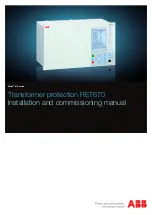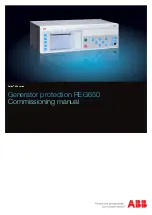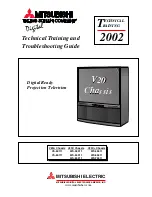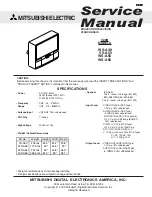
E. Approval & Technical data
Sub channels CTCSS (Continuous Tone Coded Squelch System)(Hz)
E13
Radio Channels (MHz)
E12
Ch Frequency
Ch Frequency
Ch Frequency
Ch Frequency
1
462.5625
7
462.7125
13
467.6875
19
462.6500
2
462.5875
8
467.5625
14
467.7125
20
462.6750
3
462.6125
9
467.5875
15
462.5500
21
462.7000
4
462.6375
10
467.6125
16
462.5750
22
462.7250
5
462.6625
11
467.6375
17
462.6000
6
462.6875
12
467.6625
18
462.6250
Ch Frequency
Ch Frequency
Ch Frequency
Ch Frequency
Ch Frequency
1
67.0
9
91.5
17 118.8
25 156.7
33 210.7
2
71.9
10 94.8
18 123.0
26 162.2
34 218.1
3
74.4
11
97.4
19 127.3
27 167.9
35 225.7
4
77.0
12 100.0
20 131.8
28 173.8
36 233.6
5
79.7
13 103.5
21 136.5
29 179.9
37 241.8
6
82.5
14 107.2
22 141.3
30 186.2
38 250.3
7
85.4
15 110.9
23 146.2
31 192.8
8
88.5
16 114.8
24 151.4
32 203.5
This device complies with Part 15 of the USA FCC Rules and Canada ICES-003.
USA FCC ID: QF9LOCALUS
Canada IC: 5808A-LOCALUS
CAN ICES-003(B) / NMB-003(B)
FCC Statemen
ts:
Changes or modifications to the equipment not expressly approved by the party responsible for
compliance could void the user's authority to operate the equipment.
This device complies with Part 15 of the USA FCC Rules. Operation is subject to the following two
conditions: (1) this device may not cause harmful interference, and (2) this device must accept
any interference received, including interference that may cause undesired operation.
NOTE
: This equipment has been tested and found to comply with the limits for a Class B digital
device, pursuant to Part 15 of the FCC Rules. These limits are designed to provide reasonable
protection against harmful interference in a residential installation. This equipment generates,
uses and can radiate radio frequency energy and, if not installed and used in accordance with
the instructions, may cause harmful interference to radio communications. However, there is no
guarantee that interference will not occur in a particular installation.
If this equipment does cause harmful interference to radio or television reception, which can
be determined by turning the equipment off and on, the user is encouraged to try to correct the
interference by one or more of the following measures:
- Reorient or relocate the receiving antenna.
- Increase the separation between the equipment and receiver.
- Connect the equipment into an outlet on a circuit different from that to which the receiver is connected.
- Consult the dealer or an experienced radio/TV technician for help.
This portable transmitter has been tested and found to comply with FCC General Population RF
Radiation Exposure limits set forth for an uncontrolled environment and meets the FCC radio
frequency (RF) Exposure Guidelines. The antenna used for this device must not be co-located or
operating in conjunction with any other antenna or transmitter.
ISED Statements
This device contains licence-exempt transmitter(s)/receiver(s) that comply with Innovation, Sci-
ence and Economic Development Canada’s licence-exempt RSS(s). Operation is subject to the
following two conditions: (1) This device may not cause interference. (2) This device must accept
any interference, including interference that may cause undesired operation of the device.
L’émetteur/récepteur exempt de licence contenu dans le présent appareil est conforme aux CNR
d’Innovation, Sciences et Développement économique Canada applicables aux appareils radio
exempts de licence. L’exploitation est autorisée aux deux conditions suivantes : (1) L’appareil ne
doit pas produire de brouillage; (2) L’appareil doit accepter tout brouillage radioélectrique subi,
même si le brouillage est susceptible d’en compromettre le fonctionnement.






































